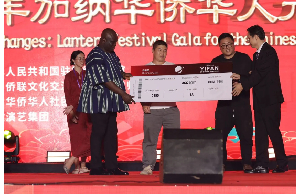Madam Hannah Owusu-Koranteng, the Associate Executive Director of the Wassa Association of Communities Affected by Mining (WACAM) has urged the government to domesticate the principles of the Economic Community of West African States (ECOWAS) directive on mining.
She said the association was expecting the government to scale up efforts to ensure that principles such as the “Free Prior and Informed Consent (FPIC) is domesticated”.
The FPIC is expected to empower host communities to be able to decide on whether they prefer mining to other economic activities based on adequate information on mining and its effects on the community.
Madam Owusu-Koranteng said this at the opening of a two-day regional workshop on WACAM’s experience sharing with extractive sector Civil Societies and community groups from Burkina Faso, Mali, Ghana, Nigeria, and Senegal.
She said most governments in the sub-region had ratified the ECOWAS Directives for Harmonisation of Guidelines and principles in the mining sector and that Ghana gazetted the Mining Directive in 2010.
Madam Owusu-Koranteng said other important provisions such as the “No Go Zones”, the “Polluter Pays Principle” and the human rights provisions should form the basis of reforms of the mining regimes in the sub-region.
She called for a cost-benefit analysis for countries to assess the social, environmental and economic costs of the minimal revenues from mining.
The WACAM Executive Director said there was the need to work together to tilt the balance of power in the mining sector in the interest of the marginalised mining communities and to influence public policy in the sub-region for a strong common mining regime for effective regulation of the sector.
She said there was a growing consciousness among Civil Society Organisations in Africa and the sub-region of the need to work together to strengthen awareness creation, share ideas, build coalition and alliances that would harness efforts to influence mining policy reforms.
Madam Barbara Oteng-Gyesi, a Deputy Minister of Lands and Natural Resources said Ghana had realised the need to promote integration and linkages development of its mining sectors to spearhead growth and industrialisation to alleviate poverty.
She said the development and use of the country’s natural resources could be optimised if a broad-based perspective of mining activities, within the context of the long-term national and continental development goals, was adopted.
Madam Oteng-Gyesi indicated that if the social and environmental impacts, resulting from mining activities, were not properly regulated and managed, it would be difficult to achieve the goal of ensuring that mining took place in a responsible manner.
General News of Friday, 1 December 2017
Source: ghananewsagency.org













